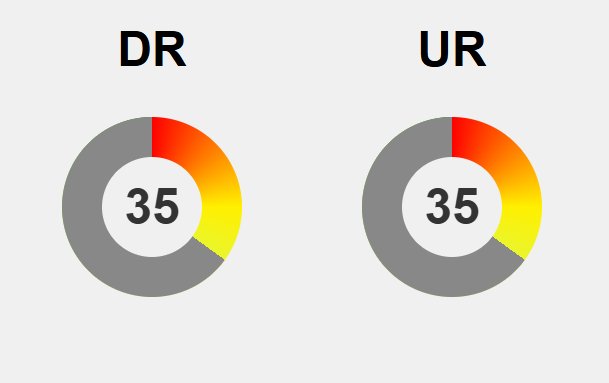Is IQ truly the best measure of human potential, or does it overlook vital qualities like creativity, resilience, and emotional intelligence? While standardized IQ tests offer a quick snapshot of reasoning and problem-solving abilities, they fail to capture the full spectrum of human talent. Traits such as perseverance, social skills, and adaptability often determine success far more than a single number ever could. As debates intensify between the reliance on traditional IQ scores and embracing a more holistic view, the conversation shifts toward recognizing diverse strengths and talents that foster growth and achievement. Could expanding our understanding beyond narrow metrics unlock hidden potentials and create more inclusive, dynamic societies? This exploration invites us to reconsider what it means to be truly intelligent, emphasizing effort, emotional resilience, and creativity as essential components of genuine human capability. Are we ready to see potential in all its multi-dimensional richness?
Unveiling IQ: What it Measures and What it Misses
IQ, or Intelligence Quotient, is a score derived from standardized tests designed to measure various mental skills like reasoning, problem-solving, memory, and language understanding. These tests aim to provide a snapshot of how well someone can think and learn compared to others their age. The scores are scaled so that the average is 100, with most people falling between 85 and 115. Scores below 70 might suggest some learning difficulties, while scores above 130 often point to giftedness. But these numbers don’t tell the whole story about a person’s potential or abilities.
Since their development in the early 20th century, IQ tests like the Stanford-Binet and Wechsler assessments have become widely used tools in schools, workplaces, and clinical settings. They are often seen as quick, standardized ways to identify talent or predict academic success. However, these tests focus mainly on specific cognitive skills—logic, memory, and verbal reasoning—and tend to overlook many qualities that contribute to real-world achievement.
Critics argue that relying solely on IQ scores oversimplifies human intelligence. Traits like creativity, emotional resilience, and social skills are equally important—and often more relevant—when it comes to success and fulfillment. An individual with a lower IQ might excel at innovative thinking or emotional understanding, while someone with a high score could struggle with motivation or relationships. This gap raises questions about whether a single number can truly capture a person’s full potential.
Additionally, cultural and educational biases influence IQ scores, making them less fair across diverse backgrounds. Language nuances, problem-solving styles, and testing environments can skew results, often disadvantaging those from different or underrepresented communities. Because of this, many argue that reducing human ability to a single number misses the complexity of intelligence and the many ways people can succeed.
While IQ can provide some insight into certain mental capabilities, it’s only one piece of a much larger puzzle. Success depends on a mix of qualities—resilience, creativity, emotional intelligence—that aren’t reflected in a test score. Recognizing this broader picture helps us understand that intelligence isn’t a fixed trait but a multifaceted and evolving aspect of human potential.
As we look ahead, it’s worth questioning whether emphasizing IQ alone helps or hinders our appreciation of individual talents. The conversation is shifting toward valuing diverse strengths and acknowledging that many qualities contribute to achievement. Moving beyond a narrow focus allows us to see each person’s unique capabilities and fosters a more inclusive view of what it means to be truly intelligent.
Beyond Standardized Tests: Expanding the Definition of Talent
When it comes to understanding human potential, many are looking beyond traditional IQ tests. These tests, while useful in some contexts, only scratch the surface of what makes someone capable and successful. Today, a range of alternative approaches are gaining ground for their ability to paint a fuller picture of talent and ability.
One of the most discussed complements to IQ is emotional intelligence. This measures how well we recognize, understand, and manage our own emotions, as well as how effectively we relate to others. Research shows that emotional skills often predict leadership, teamwork, and resilience more reliably than raw cognitive ability. Organizations are increasingly valuing these traits, recognizing that emotional competence can make the difference between good performers and great leaders.
Creativity tests also offer valuable insights into potential. They assess how effectively individuals generate new ideas, think divergently, and approach problems with innovation. In a world where adaptability and originality are prized, creativity isn’t just a bonus—it’s a necessity. These assessments highlight talents that standard tests tend to overlook, emphasizing that the ability to think outside the box is a crucial part of real-world success.
Grit, or perseverance in pursuit of long-term goals, is another key measure. Traits like resilience, passion, and sustained effort often determine whether someone overcomes obstacles or gives up. Studies show that grit can be a better predictor of achievement than intelligence alone, especially in challenging environments. It reminds us that persistence and resilience can often outweigh innate ability when it comes to reaching our goals.
Expanding our view of potential also means recognizing that traits like adaptability, social skills, and emotional resilience develop over time. These qualities can be cultivated through practice and experience, making success less dependent on innate talent and more about effort and growth. This perspective encourages a mindset where effort, learning, and emotional understanding are as vital as cognitive skills.
By embracing these broader measures, we create a more inclusive understanding of talent. It’s a shift from viewing potential as a fixed trait to recognizing it as a dynamic, multi-dimensional quality that anyone can develop. This approach opens doors for more diverse talents to flourish and reminds us that the key to success lies not just in what we are born with, but in what we nurture and cultivate.
Contrasts and Conflicts: The Debate Over Human Potential
The debate between focusing on traditional IQ scores and adopting a broader view of potential is both lively and nuanced. Supporters of IQ testing argue it provides a quick, standardized way to measure reasoning, problem-solving, and other cognitive skills. They highlight decades of research that show its reliability and its usefulness in identifying early talent or predicting academic performance. For them, a single number offers a clear, straightforward snapshot in a complex landscape of human abilities.
However, critics see things differently. They emphasize that relying heavily on IQ scores oversimplifies what it means to be intelligent. Traits like creativity, emotional resilience, and social skills often play a more significant role in real-world success but remain outside the scope of standardized tests. When these qualities are undervalued, talented individuals with different strengths can be overlooked, and stereotypes reinforced—especially given the cultural biases baked into many assessments.
This narrow focus on a single number can lead to unfair judgments. Someone might score average or below average on an IQ test but possess extraordinary social or emotional skills that help them thrive. Conversely, a high IQ doesn’t guarantee success if motivation, perseverance, or emotional regulation are lacking. This disconnect exposes the limitations of traditional testing methods and pushes us to consider a more comprehensive understanding of human potential.
In recent years, more educators and organizations are pushing for assessments that value a wider range of qualities—like creativity, grit, and emotional intelligence. These traits often determine how well someone adapts, overcomes setbacks, and leads others. Moving toward this holistic approach recognizes that intelligence isn’t a fixed trait measured by a single test but a complex interplay of abilities that vary from person to person.
Ultimately, the debate reveals a fundamental question: should we judge human potential by a narrow metric or embrace its many dimensions? The evidence favors the latter. Human ability is multifaceted, and reducing it to one score risks missing the richness of individual talents. A broader perspective not only fosters fairness but also unlocks a more accurate, inspiring view of what people can achieve when all their strengths are recognized.
For those interested in exploring more about the different ways to assess human potential, the concept of alternative assessments offers promising insights. These methods aim to capture a wider array of skills and attributes, providing a more holistic view of individual capabilities. To learn more about innovative approaches to measuring talent, visit alternative assessments.
Application in Life: Cultivating a Broader View of Success
Understanding that potential extends far beyond a single test score can transform how we approach education, careers, and personal growth. When educators recognize qualities like creativity, emotional resilience, and perseverance, they can craft learning environments that nurture a wider range of talents. Instead of prioritizing exam results alone, teachers can encourage curiosity, critical thinking, and problem-solving, helping students develop skills that are vital in real life. This shift makes learning more inclusive and better equips students to navigate an unpredictable world.
In the workplace, valuing traits like grit, adaptability, and emotional intelligence shifts hiring practices and team dynamics. Employers who look beyond IQ scores tend to find employees more capable of handling stress, collaborating effectively, and innovating. When organizations emphasize these qualities, they foster cultures of growth and resilience, where continuous development takes precedence over narrow performance metrics. Over time, this approach cultivates more dynamic, creative teams that are better prepared to face change and overcome setbacks.
On a personal level, understanding the many facets of potential empowers individuals to focus on their unique strengths. Cultivating resilience through mindfulness, exploring creative hobbies, or improving emotional skills through social interactions can all be deliberate pursuits. Recognizing that growth isn’t limited to innate intelligence opens up new paths for self-improvement and fulfillment. It encourages a mindset where effort, persistence, and emotional awareness are just as crucial as academic or cognitive abilities.
This broader perspective influences how we support others, from mentoring to community programs. When we see potential as a multi-dimensional concept, we become more attentive to talents that might otherwise go unnoticed. Valuing diverse strengths creates more inclusive spaces where everyone has the opportunity to thrive. Such an approach not only broadens individual possibilities but also enriches communities by harnessing a wide spectrum of human talent.
Fostering environments that recognize various qualities helps unlock talents that traditional measures overlook. Creativity, emotional resilience, and perseverance become as vital as intelligence, opening doors for those who might be underestimated by standard tests. By emphasizing growth and effort, we enable more people to realize their full potential, regardless of initial ability levels.
Encouraging this inclusive view also shifts societal expectations. Instead of narrowly defining success through academic scores, we begin to appreciate different paths and talents. This creates a more equitable landscape, where diverse skills are valued and cultivated. It inspires individuals to pursue their passions and develop qualities that lead to meaningful, lasting achievements.
Ultimately, understanding multiple facets of potential fosters a more compassionate and dynamic society. It reminds us that everyone brings unique strengths to the table and that success is a complex interplay of many qualities. By embracing this broader view, we not only empower individuals but also build stronger, more innovative communities capable of tackling future challenges with confidence.
Conclusion and Reflection: Embracing the Full Spectrum of Human Ability
Understanding true potential means looking beyond the narrow scope of IQ scores. While these numbers can offer some insight into reasoning and problem-solving, they miss the richer tapestry of human talents that truly drive success and fulfillment. Traits like emotional resilience, creativity, grit, and adaptability shape how individuals navigate challenges, innovate, and build meaningful relationships. Recognizing this broader spectrum helps us appreciate strengths that standardized tests often overlook and reminds us that intelligence is multi-dimensional, not a fixed trait.
The conversation around intelligence is shifting. Instead of viewing it as a single, measurable entity, we are embracing its complexity and diversity. Success isn’t dictated solely by innate ability but by a blend of qualities that interact uniquely in each person. When we value emotional intelligence, creativity, and perseverance alongside cognitive skills, we open doors to a more inclusive and accurate understanding of human potential. This perspective encourages us to see the many ways people can excel, fostering a culture of growth and possibility.
Relying solely on IQ can reinforce stereotypes and biases, especially given the cultural and educational limitations embedded in many assessments. It tends to undervalue talents that don’t fit the traditional mold, such as social skills or emotional strength, which are often critical in real-world settings. Moving toward a holistic view allows us to recognize and nurture these varied abilities, creating opportunities for everyone to thrive. It shifts the focus from what people lack to what they can develop, emphasizing effort and resilience over fixed traits.
This expanded understanding of potential influences every aspect of life—from how we educate and hire to how we support personal growth. When environments foster diverse talents, individuals gain confidence to explore their passions and develop their unique strengths. By valuing effort, persistence, and emotional intelligence as much as intelligence quotient, we cultivate a society that celebrates progress and adaptability. This approach not only broadens pathways to success but also builds more resilient communities.
Seeing human potential as fluid and multi-faceted transforms our expectations and aspirations. It invites us to see success as a journey, not just a destination marked by test scores. Every person possesses a unique constellation of talents waiting to be uncovered and cultivated. By embracing this richer, more inclusive view, we empower individuals and communities alike to reach heights previously limited by narrow definitions. In doing so, we not only unlock hidden potentials but also foster a future where all forms of human ability are valued and celebrated.




